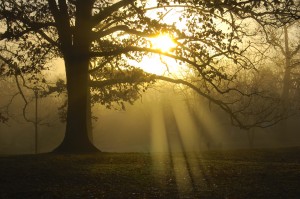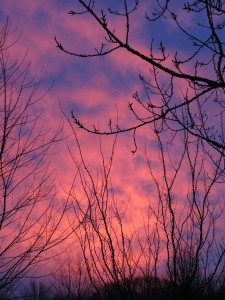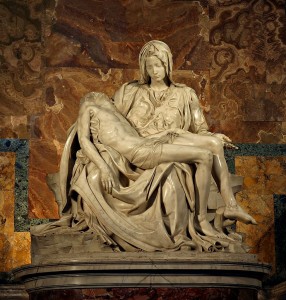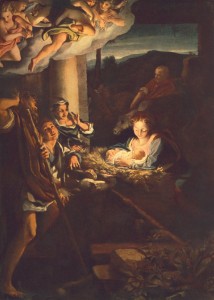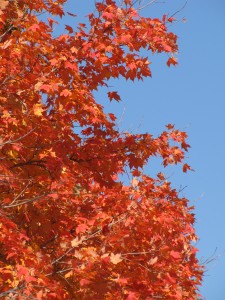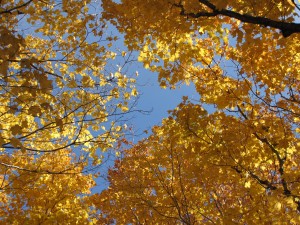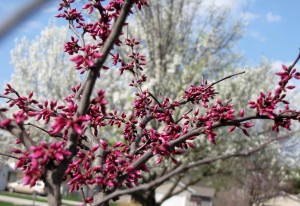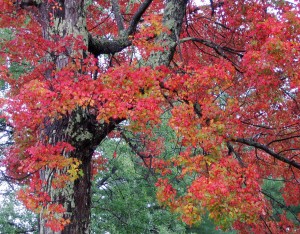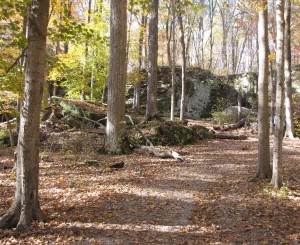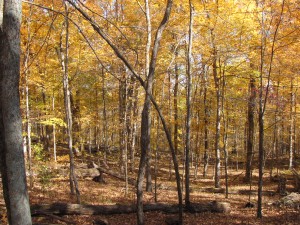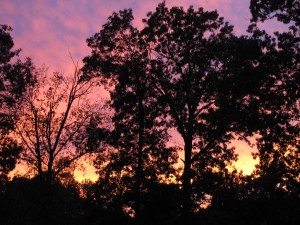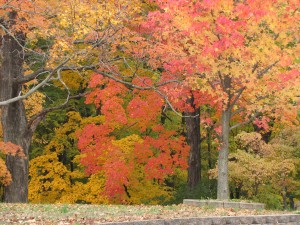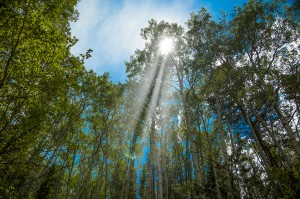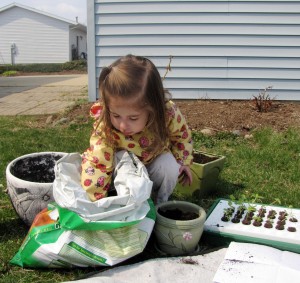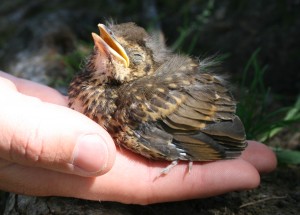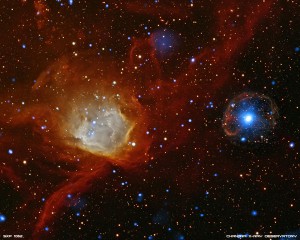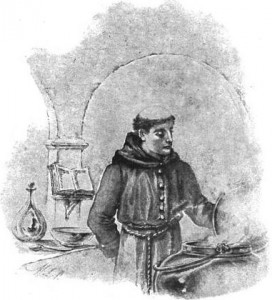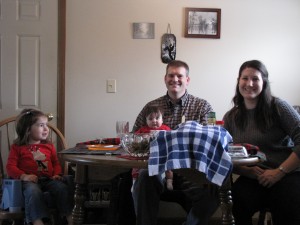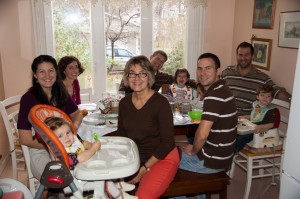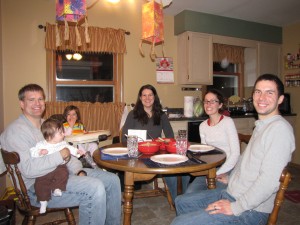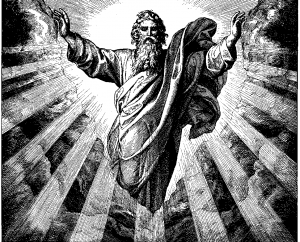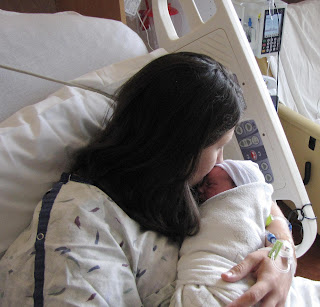Category Archives: creation
Junky Art
We love a God of beauty.
We worship a God of art, of music, of literature.
We serve a God of perfection.
We adore a God Who gives us only His best.
Why, oh why, then do we consistently offer Him art that is, to put it bluntly, junk?
Why do we think that music that is dull and overly simple is what is best for inspiring our hearts to worship? Why do we think that literature that is bland and is bad storytelling will turn our minds toward thoughts of God? Why do we think that art that is commercialized and overly sentimental will cause our imaginations to soar to the heavens?
Perhaps this is harsh. I will fully admit that there are artists (in the full sense of the word) out there who inspire awe in the hearts of all those who come across it. But this is not the norm. Not anymore, that is.
It used to be that Christians artists were at the top of their craft. They were respected and admired throughout the world. Think Bach. Think Correggio. Think Milton and Tolstoy.
It is not this way anymore. The secular world no longer looks up to Christian art to lead the way. Instead it sneers at Christian art and views it as subpar, something to be shunned rather than something to inspire.
To paraphrase James: my brothers, this should not be! The lack of excellence in our art indicates to the world that we serve a God who is less than excellent.
Much so-called religious art is in fact bad art, and therefore bad religion. ~ Madeleine L’Engle
Oh, we could do so much better. We could open ourselves up to the power of the Holy Spirit rather than to the power of the market.
Fellow artists, let God inspire you. Open yourself to that which you cannot control. Ignore the sale; ignore what you think people want. Listen instead to the Spirit. Listen to what God is showing you through your work: “my proper place is as a servant struggling to be faithful to the work, the work which slowly and gently tries to teach me some of what it knows.” (L’Engle)
Let your art sing. Let it soar.
Those who are not artists, be discerning. If it is good art, if it inspires you and sets your imagination soaring toward God, then support it. If it is bad art, don’t support and sustain it simply because it involved the name or image of Christ.
I know that my words do not reach many, but I dream of a day when those who claim to follow a God of beauty and excellence are once again those who produce that art which leads the entire world in soaring to the heights, are once again those who produce the art which therefore points the way to God.
Trees
I couldn’t live where there were no trees – something vital in me would starve. ~ Anne of Green Gables
I love coming across new evidence of God’s love for us.
I have always loved trees, have always felt much like Anne did about living without them, but the most I’d really thought about them in terms of their relation to God is what an amazing job He did in creating them.
I recently listened to an interview with a couple of artists on Mars Hill Audio Journal. It was only a minute or two of the entire segment, but they mentioned that after the human face and figure, trees are the main focal point for artists. Whenever there is a tree in a painting, it automatically draws the eye to it.
Why is that true? One of their hypotheses was that it has something to do with our deep subconscious knowing that we need trees to survive, our knowing that we depend upon trees for life. I wonder, though, if it is even deeper than that.
My mind is drawn to the tree that God chose as our point of obedience. We chose foolishly and we disobeyed.
My mind is also drawn to the tree that God chose as our point of redemption. He chose beautifully and we were saved.
God has chosen trees for great purposes. Did He have those purposes in mind as He created trees? I wonder.
Trees are often used in God’s Word to show strength and constancy. One of my favorites is the Psalm that says that a man who delights in and meditates on God’s law is like a tree planted by streams of water that yields its fruit in season and whose leaves never wither.
I wonder. And I imagine. I can imagine that God knew that He would create Man to love images, to hunger after metaphors to help explain the unexplainable. I can imagine that same God, before He ever spoke light into being, planning out His world to contain specific metaphors of meaning, just because He loves us. I can imagine Him planning His trees to look a certain way, planning to use them in a particular manner, so that we would see them and draw meaning from them and be satisfied, just because He loves us.
Perhaps that is a stretch. Perhaps it didn’t really happen that way. But it seems like something that would be just like our God: to carefully plan out His creation in the way that would give His children the most joy.
Doesn’t it?
Art credit: last photograph by Kirk Sewell (R K Sewell Photography)
Our Purpose
It is a question as old as humanity: Why are we on earth and what are we supposed to do while we are here?
Even the ancients spent time on this. The Bible tells us from the very beginning in Genesis about many who searched for and discovered their purposes: Jabal discovered how to raise livestock, Jubal developed different types of music, Tubal-Cain mastered metalworking.
These ancients figured out what to do while here on earth, but what about us? What is our role? Many answers can be found by gazing into the moment we were created.
Then God said, “Let us make mankind in our image, in our likeness…”
We have a dual role, we humans. A dual purpose, given to us by God Himself. Let us make. We are created, a part of God’s creation. In our image. We are God’s unique counterpart, His representatives here on earth.
Being made in God’s image brings with it certain responsibilities. The second part of Genesis 1.26 says that God decided we were to rule, to have dominion over, all living creatures.
David echoes this in Psalm 8 when he says that God crowned us with honor and made us rulers of all that God created.
This has, unfortunately, been used too often as an excuse to plunder the earth and destroy it. Instead, “as God’s image bearers…we are to be wise stewards of the earth, caring for it and protecting it in a way that reflects and embodies God’s rule over his creation.” ~ Resounding Truth by Jeremy Begbie
As God’s representatives, His image bearers, we also are to spread the knowledge of God and His love to the rest of the world. We are to work to speed up God’s future goal for creation, to bring healing, restoration, hope and peace to the world around us.
Israel was supposed to be a picture of this. Israel was called to be God’s people, accomplishing God’s purposes for humanity in and for the world. They had experienced God’s rescuing power and love and were intended to be His way of giving that love to the rest of the world.
Does that sound familiar, as though it were, perhaps, something we are supposed to do? I wonder what would have happened if Israel had obeyed. What would our world look like if they had acted as God’s representatives? This is a painful question because Israel’s purposes were but a shadow of our own.
What would our world look like if we were truly acting as God’s representative? What would our neighborhood, our community look like if we were caring for and protecting our world, if we were sharing God’s rescuing love with the people around us? Different?
Things have gone wrong and many live in alienation from one another and in purposeless and destructive living. We should want to be different. We should be reflecting the image of God to the piece of creation in which He has placed us.
Our second role from that moment of creation is our very creatureliness. “Let us make man in our image, in our likeness…”
We are created by God. Along with the trees, mountains, birds and sun, we ARE God’s creation. We humans, however, have a unique role that was given to us on behalf of all of creation. A role that only we can fulfill.
We are (as far as we know!) the only creatures who can love God in return. We are the only part of creation who can give voice to the wordless praise of all creation.
In the human being, creation finds a conscious answering voice, a mortal from the dust of the earth who can know and respond to God’s love as a creature, love God in return, and as a part of this response, voice creation’s praise. ~ Resounding Truth by Jeremy Begbie
This is a beautiful picture and a beautiful role. What grace that God entrusted this to us! And yet what tragedy that our role as worshiper in creation has twisted into worshiper of creation. Including worshiper of self. Just as we have twisted our role as God’s representative, we have twisted our role of offering worship on behalf of all creation.
However. (What a beautiful word is however!) God gave us grace through Christ.
Jesus. Man. God. A man who gave complete and un-distracted praise to God. A man who perfectly acted out God’s wise rule in the world.
He is creation’s worship to God ~ perfect praise from us to God, creation’s perfect voice. He is the image of God to us ~ perfect representation of God, being a wise steward of the earth He brought healing, restoration, hope and peace from God to earth.
Jesus helped and healed many people, like this. He made blind people see. He made deaf people hear. He made lame people walk. Jesus was making the sad things come untrue. He was mending God’s broken world. ~ Jesus Storybook Bible
The most exciting part of this news about Jesus? We are invited to join Him. What joy and grace! What a gift! By reflecting God’s image to the world around us, to the tiny piece of creation (human and non-human) in which God has placed us, we are voicing the praise of creation back to God.
What a beautiful circle. What beautiful purpose.
Art Credits: photo of bird in hand by SP Veres; Christ in the House of Martha and Mary by Johannes Vermeer
reworked and much edited from the archives
it’s a little funny to me that this blog is old enough to have archives
Using Science
I have wondered before in this space, wondered why science and our faith seem always to be at such odds. I have lamented the idea that fear is driving the Christian’s response to science and therefore is driving many intelligent people away from our faith and our churches.
What I did not address in my previous musings is how it seems that every time there is a new scientific discovery, a new theory about our world and our universe, both sides seem to leap upon the premise as proof of their point of view.
Whether we speak of the observation that the earth revolves around the sun or the theory of big bang cosmology, every new discovery or theory is at the first seized upon to carry wide-reaching theological and philosophical consequences.
Those who do not believe in our God grasp at the new discovery to be used as a new attack against Christianity. Those who do believe either dismiss it out-of-hand as patently false, a conspiracy of scientists who twist the facts to suit their own purposes, or else (perhaps more embarrassingly) try to use it as the basis for a new defense for proving their beliefs to the world.
Yet each time this occurs, when “the popular hubbub has subsided and the novelty has been chewed over by real theologians, real scientists and real philosophers, both sides find themselves pretty much where they were before.” ~ C.S. Lewis
One would think that we, as humanity, would learn. I suppose, though, that what was true in the third century, BC, is still true today. There is nothing new under the sun.
We would do well, I think, to remember that the purpose of science is to try to figure out how things work. Science does not give ultimate explanation for the origin and existence of the universe or answer questions concerning the purpose of the universe or of our existence.
Perhaps our role as believers is not, after all, to prove our faith beyond a shadow of a doubt. Perhaps this attempt is what leads us to seize upon science as either a hoax or a tool without really knowing the first thing about the particular theory or discovery we are discussing. This, I think, leads to the valid complaint among unbelievers that we tend to speak hotly about things we do not understand.
Perhaps, instead, we should remember that faith is something that can be pointed to, that can be supported by evidence and can be intelligently concluded to be true, but is not something that can be proved in a way that people cannot help but believe.
When our faith can be proved in such a manner, that, I believe, is the day we will call Judgement.
What we believe always remains intellectually possible; it never becomes intellectually compulsive. I have an idea that when this ceases to be so, the world will be ending. We have been warned that all but conclusive evidence against Christianity, evidence that would deceive (if it were possible) the very elect, will appear with Antichrist. And after that there will be wholly conclusive evidence on the other side.
But not, I fancy, till then on either side. ~ C.S. Lewis
Art credits: DNA photo by Tomislav Alajbeg; Pulsar and Supernova photos from NASA
Sacred Eating
This is an essay that was featured on (in)courage’s Bloom Book Club Facebook page a few weeks ago. Those who were featured were asked to also post these essays on our blogs this week and link up with everyone else on the Bloom website. For those who have already read this essay once, I’ve added some pictures and a few links if you would like to read again. For those who have not read this essay yet, welcome!
My girls love to eat.
By “love to eat”, I mean that they are mildly obsessed with eating. It is, in fact, difficult to get them to stop at times.
When I was in the hospital, having just given birth to my second girl, my dad called me around lunchtime. “Analise has had two sandwiches, some yogurt, a bunch of grapes, a banana, and some applesauce and she says she’s still hungry.” “Cut her off! Cut. Her. Off.” was my gracious response.
I am grateful that I do not have to deal with picky eaters, and at the same time I wonder how to get my girls to slow down, to enjoy the act of eating more rather than simply inhaling as much food as possible.
It is so easy to fragment my life between sacred and secular, and eating would seem to fall into the latter category. Eating is, after all, a physical necessity, a way to sustain our bodily functions.
Yet God wants to knit the secular places of my life back into the sacred.
Love the Lord your God with all your heart and with all your soul and with all your strength. These commandments that I give you today are to be upon your hearts. Impress them upon your children. Talk about them when you sit at home and when you walk along the road, when you lie down and when you get up.
Brother Lawrence, the dishwashing monk says:
The time of business does not differ with me from the time of prayer; and in the noise and clatter of my kitchen, while several persons are at the same time calling for different things, I possess God in as great a tranquility as if I were upon my knees at the blessed sacrament.
So how do I make eating into a deliberately sacred event rather than a piece of my day that has no connection with God?
I am learning that eating is linked over and over again to fellowship with and enjoyment of God.
In the story of the Prodigal Son, the Father celebrates the son’s return with a feast.
Jesus shares His last supper with his closest friends and then tells them that He will not drink again until He does it with us in heaven.
The image of a banquet, especially a wedding feast, is used several times to illustrate our enjoyment of God when we are finally with Him in body.
When we eat, we often are doing more than simply nourishing our bodies. We are sharing of ourselves with our family and our friends. This is sacred.
Perhaps eating is one of the last things that our culture hasn’t been able to take the sacred out of.
Our world tries hard to take God out of all that we do, to make everything a matter of utility. Yet when we share a meal with our family or with our friends, there is a sacredness there that is felt even by those who do not claim to follow God.
God created food. He created eating. When all is created, when all is love, then nothing is ordinary. Everything is sacred.
I cannot separate my life into ordinary parts and miraculous parts, into secular parts and sacred parts, into praising God parts and eating parts.
Without Christ, nothing was made that has been made. In Christ, all things hold together.
When we share a meal together, it is not ordinary, it is not solely of this world.
No matter how tempted I am to name something as mundane, as secular, it is not so.
Nothing that God has created is ordinary.
All is miracle. All is sacred.
There is nothing so secular that it cannot be sacred, and that is one of the deepest messages of the incarnation. ~ Madeleine L’Engle in Walking on Water
Art credit: Brother Lawrence in the Kitchen from a book published by Fleming Revell Co. in 1900.
The Town of Villacor
**Be gentle with me, my friends. I’m experimenting with a different style…just for the fun of it!**
Once upon a time, there existed the town of Villacor. It was a beautiful town, full of beautiful people. The townspeople of Villacor loved each other and loved their town. They were lovely because they loved.
This town was ruled by a king. He had lived in the town at one time, but now was absent, having returned to his own country for a time. The townspeople didn’t remember him very well, but they loved each other and loved their town, so they tried to care for each other the best they could. All was lovely because they loved.
Over time, the townspeople began to feel a strange kind of burning inside of them. They weren’t sure that they were very important to the king anymore. He hadn’t been to visit them in such a long time, perhaps he didn’t care anymore, maybe he wasn’t ever coming back. Besides, they reasoned that if he did ever return, surely he would take them away to his own country, which must be perfection itself, rather than forcing them to stay in their own place.
As they wondered these things, the townspeople of Villacor began to love not quite so well. It showed up in small things at first: an unkind look, a piece of trash, a little less food left for the animals. Yet as time went on and the king did not return to look after his town, this not-loving grew bigger and bigger. And things began to look less lovely because they were less loved.
The town grew dirtier and more cluttered. Even the people began to look ugly. The people began hating each other and hurting each other, which left scars. The animals were neglected and began to turn on themselves and to destroy the plants for food. All was ugly because they were not loved.
Then one day a small group of Villacorians looked around at each other and at their town and decided to trust what the king had told them. If the king had promised to return, then he would one day return. If the king had said that he loved them and loved their town, then it must be so. And if the king loved their town, then he must mean for them to remain in it. This little group of people looked around at the town that was loved by the king and they began to love it too, for his sake, even though it was still ugly for having been so unloved.
This little group began caring for the town and for each other. They treated their fellow townspeople with kindness and gave grace in return for hate. They picked up trash where they found it and tended the plants and animals. The town and its people began to look a little more lovely because they were once again being loved.
Time continued to pass, and even though the king still had not returned, the little group of townspeople worked hard at loving their town as their group grew and grew until finally, once again, the town was beautiful, full of beautiful people who loved each other and loved their town. They didn’t know when the king would return, but they trusted that he would someday return because he had promised that he would always love them. They were lovely because they loved.
Finally the day came. Trumpets sounded over the trees and lakes as the sun burst over the hilltop. The townspeople of Villacor rushed out of the town into the countryside to greet their king. They surrounded him and brought him back into their town to show him how they had cared for their town. They showed the king the beauty and cleanliness of the town, the well-tended plants and animals, and demonstrated the acts of kindness that they showed to each other.
One small girl asked the king why it had taken so long for him to return. Another little boy asked if the king was going to carry them all back to his own country. The king smiled at them all and said, “My children, I was waiting for you. It was only when you began to care for the town and each other that everything grew into the way that I had intended all along. When you began loving each other and loving your town, you changed into a new people and a new town, as beautiful as you were in the beginning. Now I have come, and rather than take you away from this town you have learned to love, I will now make my home with you.”
And the king’s love became a physical shining that encompassed them all and made everything it touched even more beautiful than it had been before. They were lovely because they were loved.
God Laughing
I recently made a slightly startling discovery about myself.
Of all of the many ways I imagine God, of all of the variety of emotions that I attribute to Him, I don’t ever imagine Him as happy.
I don’t imagine Him laughing or smiling widely. I don’t imagine Him with eyes twinkling or Him speaking with such joy evident in His voice.
I have, in the past, imagined Him as serious, holy and unapproachable. I have imagined Him as gently gazing with love on His people. I have imagined Him fierce with righteous anger. I have imagined Him sad, heart breaking as we disobey. I have imagined Him in full brilliant glory, all around Him bowed low to the ground.
But I have never imagined Him laughing in delight.
Then I heard David Suchet reading the Jesus Storybook Bible. (David Suchet? You know, Hercule Poirot.)
Anyway, I listened to David Suchet read the story of creation and heard such laughter and exhilaration each time God looked at His artistry and said “You’re good!”
I heard the amazement and joy in His voice when He looked at mankind and said “You look like me! You’re perfect.”
I heard the excitement and merriment when He got to tell Abraham, “Guess what?! I will give you so many children and grandchildren and great-grandchildren, you won’t be able to count them any more than you can count the stars in the sky!
Why have I never imagined this before?
Even when I read things like If you, then, though you are evil, know how to give good gifts to your children, how much more will your Father in heaven give good gifts to those who ask him! I didn’t imagine the excitement and fun twinkling in our Father’s eyes as He gives gifts to His beloved children.
You know. The same delight that sparkles in your eyes when you give a gift that you chose specially for someone you love.
Yes, God loves us.
But it is even more than that.
He delights in us. His eyes light up with amazement when He sees how perfectly He made us. He laughs out loud with joy at the miracle of who He created us to be.
Will you believe that?
You, sister, who have been told by the church that you must look a certain way or behave in a particular manner in order to be beautiful or accepted by God, that you can only be defined by marriage or motherhood, see God gazing at you, mouth smiling wide with joy, eyes sparkling with pleasure and satisfaction as He sees your heart and your outward appearance. You are lovely because you are loved by Him.
You, brother, who have been told that you must enjoy certain activities or conduct yourself with a certain demeanor in order to be truly a man or to fulfill God’s purpose for you, hear God laugh loud in utter delight at the way your personality mirrors some aspect of His own, see His arms flung wide in joyful abandon at the sight of you trying to be like your Father. You are admired because you were created by Him.
You, dear one, hear God laughing over you with radiant delight, see Him grinning wide with eyes gleaming, feel His joy wash over you in absolute approval.
You are perfect just as He created you because He loves you.
Art credits: Creation of the Sun and Moon by Michelangelo; Woodcut for “Die Bibel in Bildern” by Julius Schnorr von Carolsfeld
Inexpressible
This week’s guest essay is written by another college friend, Tiffany Yecke (now Tiffany Brooks). Tiffany and I spent a semester together in Greece, where I learned how very smart and fun she is, and how beautiful her heart is. Tiffany is incredibly talented and works full-time as a writer, so I was very grateful that she agreed to write a little something for my blog space! If you want to read more of her musings, you can find her at Preach Write Act (www.preachwriteact.blogspot.com)
The Inexpressible
By Tiffany Yecke Brooks
Imagine and describe an animal you’ve never seen. Easy enough, right? We’ve all done that at one point or another in our childhoods. Now imagine and describe a food or dish you’ve never had. This one may be a little harder, since it involves having the figure out what the taste or texture or aroma might be in terms of mixing ingredients and mode of cooking—but it’s still doable with a little effort. Now, imagine and describe a color you’ve never seen. Whoa—what?
Go on, just give it a try.
It kind of boggles the mind once you start really thinking about it, doesn’t it? I mean, we’ve all seen the color wheel, which encompasses every hue of visible light. We have seen every color that exists, and we know from basic color theory what combining different colors will produce (blue and yellow make green; green and blue make turquoise or teal depending on how much white or black is also involved; blue and red make purple; purple and green make a gross, muddy brown, etc.). But the fact is, there really isn’t any way for the human mind of conceive of a brand-new-never-before-made color or color mix or shade or tint or anything else because we have already exhausted our ability to see color in all of its various hues. Such a thing as a “new color” simply does not exist given our finite spectrum of visible light.
Without going into a complex explanation of the anatomy of the human eye (mainly because, for some unknown reason, they don’t cover that in English major courses in college so I don’t really know that much about it myself), sight is possible through a complex series of rods and cones that absorb and reflect light onto receptors, which our mind then registers as colors. Human eyes have cones that register red, blue, and green as our primary colors, and then mix the intervening hues accordingly and automatically—almost like autocorrect on your phone or auto-formatting in text documents. If colors are opposite one another on the color wheel or visible light spectrum, like red and green, they render one another nil and instead of mixing, just descend into the dull, muddy family of browns.
[Side note: You probably learned that yellow is one of the three primary colors, not green. And this is true when speaking of a color as a fixed hue. But light exists as both a particle AND a wave, so yellow is the third primary as a particle but green is the third primary when it is a wave. Yeah, I know. I don’t really understand it either. We’re getting into some fairly complex physics here, but you can look it up on Wikipedia if you’re interested in learning more; just trust me that this is a very basic explanation of light theory.]
God invented the whole system of the inner-workings of the eye, and it’s pretty impressive. But here’s the thing: There are colors that exist that we can’t see.
I’m not talking about infra-red camera images or ultra violet lights in those fascinating-but-horrifying exposes about the hidden germs in hotel rooms or on shopping carts or whatever. I mean that there are colors that exist that the rods and cones of the human eye are not capable of mixing, such as red and green, but that are visible to other creatures with different ocular anatomy, such as birds. But that doesn’t make those colors any less real—it simply means that they do not exist on our spectrum of visible light.
There is a fascinating article, which you can read here, that explains this all much better than I can; but, essentially, in 1983, researchers Hewitt Crane and Thomas Piantanida conducted a study published in the journal Science wherein they were able to hold the human eye so precisely steady that the waves of both red and green light were able to hit the subjects’ eyes’ microscopic light receptors individually so that only red and only green as individual colors were registered, without any of the mixing and subsequent cancelling out that would normally occur and result in brown. As the above article states:
The color they saw was “simultaneously red and green” Crane and Piantanida wrote in their paper. Furthermore, “some observers indicated that although they were aware that what they were viewing was a color (that is, the field was not achromatic), they were unable to name or describe the color. One of these observers was an artist with a large color vocabulary.” . . . It seemed that forbidden colors were realizable—and glorious to behold.
Just stop and let that sink in for a minute. Can you imagine what that must have been like to witness a whole new realm of color for which your mind does not even have a category to express, let along to fully fathom?
I wonder if this was part of Paul’s experience, when he writes in II Corinthians, 12:2-4, “I know a man in Christ who fourteen years ago was caught up to the third heaven. Whether it was in the body or out of the body I do not know—God knows. And I know that this man—whether in the body or apart from the body I do not know, but God knows—was caught up to paradise. He heard inexpressible things, things that man is not permitted to tell.”
Maybe this is part of what John attempts to capture in his description of his vision of the heavenly city in Revelation:
He took me in spirit to a great, high mountain and showed me the holy city Jerusalem coming down out of heaven from God. It gleamed with the splendor of God. Its radiance was like that of a precious stone, like jasper, clear as crystal . . . The foundations of the city wall were decorated with every precious stone; the first course of stones was jasper, the second sapphire, the third chalcedony, the fourth emerald, the fifth sardonyx, the sixth carnelian, the seventh chrysolite, the eighth beryl, the ninth topaz, the tenth chrysoprase, the eleventh hyacinth, and the twelfth amethyst. The twelve gates were twelve pearls, each of the gates made from a single pearl; and the street of the city was of pure gold, transparent as glass . . . The city had no need of sun or moon to shine on it, for the glory of God gave it light, and its lamp was the Lamb.
There is no way to know for sure, of course—not in this life, anyway—just what it was those men witnessed that transcended description in human words. But it is incredibly humbling, is it not, to think of the realm of the unseen, the magnificent and inexpressible splendor of the fullness of creation and God’s majesty? To behold the awesome, dazzling, indescribably glorious presence of God, unencumbered by the limitations of our earthly bodies and minds? To see with the fullness of the universe? And not just with the fullness of colors, but with the fullness of time, of possibility, of reason, of understanding? The completeness of God’s works, His plan, His love?
Let us cling to this knowledge—that there is a realm outside of our ability to glimpse or comprehend, but no less real—when all the possibilities of our visible lives seem exhausted. That is our hope and our salvation. That is our ultimate goal. As Paul reminds us in I Corinthians 13:12, “Now we see but a poor reflection as in a mirror; then we shall see face to face. Now I know in part; then I shall know fully, even as I am fully known.”
Craving Connection
Fairly regularly, my eldest will call to me after I have put her to bed for the night.
Every mother knows this instinctively, that their babies need their touch, but it is also a documented subject of research studies. A 2009 Cochrane Reviewof studies found that infants who have their skin stroked regularly cry and fuss less than those who don’t. Science also has shown that skin-to-skin contact lowers levels of the stress hormone cortisol.
So He once again gently leaned in close to us and became a soft, touchable baby. A baby that we could touch and hold and kiss.
A baby that would once again breathe on us and in that final breath on the cross, reconnect us to our Abba.

